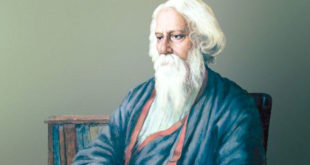301. Viable —
(a) Possible, (b) That can be done, (c) Capable, (d) That will work.
Ans: (c) Capable.
302. A person whose head is in the clouds is —
(a) Proud, (b) A day-dreamer, (c) An aviator, (d) Useless.
Ans: (b) A day-dreamer.
303. Equivocation —
(a) A true statement, (b) Equal opportunity of opinions,
(c) Free expression of opinions, (d) Two contrary things in the same statement.
Ans: (d) Two contrary things in the same statement.
304. Rizvi requested Rini ___ telephone to attend the meeting.
(a) on, (d) over, (c) through, (d) with.
Ans: (b) over.
305. Disinterested:
(a) lack of interest, (b) indifferent, (c) neutral, (d) callous.
Ans: (c) neutral.
[Note: Impartial, Objective]
306. Electorate:
(a) election office, (b) a body of voters, (c) many elections, (d) candidates.
Ans: (b) a body of voters.
307. He appointed me ___ the post.
(a) in, (b) on, (c) to, (d) for.
Ans: (c) to.
308. He desisted ___ doing this.
(a) on, (b) to, (c) of, (d) from.
Ans: (d) from.
[Note: Desisted means Refrain]
309. Sequester:
(a) to follow, (b) round up, (c) to withdraw, (d) question closely.
Ans: (c) to withdraw.
[Note: লোকচক্ষুর আড়ালে সারিয়ে রাখা, একান্ত বা নিরিবিলিতে রাখা।]
310. Your conduct admits ___ no excuse.
(a) to, (b) of, (c) for, (d) from.
Ans: (b) of.
311. Delusion means —
(a) Dream, (b) Misbelief, (c) Deception.
Ans: (b) Misbelief.
312. পাঁচ টাকা হলেই চলবে —
(a) Five taka is enough, (b) Five taka is sufficient,
(c) Five taka will do, (d) Five taka will meet the demand.
Ans: (c) Five taka will do.
313. A phrase is a —
(a) a group of words to express a certain idea,
(b) noun and adverb combined together to express ideas,
(c) noun and adjective combined together to express ideas,
(d) a group of related words used as a single part of speech.
Ans: (d) a group of related words used as a single part of speech.
314. Belligerent —
(a) hostile, (b) hospitable, (c) amicable, (d) friendly.
Ans: (a) hostile.
315. A person who studies the scientific development of a language is a —
(a) philatelist, (b) philologist, (c) linguist.
Ans: (b) philologist.
316. They had to call ___ the match as the ground was wet.
(a) on, (b) of, (c) out, (d) up.
Ans: (b) off.
317. I saw him in the market but he ___ having been there.
(a) refused, (b) turned down, (c) defied, (d) denied.
Ans: (d) denied.
318. In a body — (a) together, (b) unitedly
Ans: (a) together.
319. Technically, glass is a mineral and ___.
(a) so is water, (b) water is so, (c) so water is, (d) water so is.
Ans: (a) so is water.
320. Plural form of ‘Cannon’ —
(a) Cannoes, (b) Cannos, (c) Cannons, (d) Cannon.
Ans: (d) Cannon.
321. ‘To meet trouble halfway’ means —
(a) to be puzzled, (b) to get nervous, (c) to be disappointed, (d) to be upset.
Ans: (a) to be puzzled.
322. ‘He died of fever’- its passive form is —
(a) Fever caused him to die.
(b) Fever caused him to death.
(c) He was caused to die of fever.
(d) His death was caused by fever.
Ans: (a) Fever caused him to die.
323. A famous short story of Maupassant is —
Ans: The Diamond Necklace.
324. TENSILE: VINE —
(a) trunk:tree, (b) pollen:flower,
(c) pseudopod:amoeba, (d) cobra:snake.
Ans: (a) trunk:tree.
325. CONTEMPORANEOUS:EVENTS —
(a) concomitant : episodes, (b) modern:times,
(c) temporary:measures, (d) repetitive:steps.
Ans: (a) concomitant : episodes
326. RETAINER:RETINUE —
(a) servant:mansion, (b) witch:coven,
(c) vassal:homage, (d) director:corporation.
Ans: (b) witch:coven.
327. HERO:ACCOLADE —
(a) mentor:advice, (b) suitor:proposal,
(c) defendant:indictment, (d) laughing stock:ridicule.
Ans: (d) laughing stock: ridicule.
328. A Sonnet is a poem, consisting of —
(a) 16 lines, (b) 5 stanzas, (c) 20 lines, (d) 14 lines.
Ans: (d) 14 lines.
329. After the funeral, the residents of the apartment building ___.
(a) sent faithfully flowers all weeks to the cemetery,
(b) sent to the cemetery each week flowers faithfully,
(c) sent flowers faithfully to the cemetery each week,
(d) sent each week faithfully to the cemetery flowers.
Ans: (c) sent flowers faithfully to the cemetery each week.
330. At last, the beast in him got ___ upper hand.
(a) an, (b) the, (c) at, (d) কোন শব্দের প্রয়োজন নেই।
Ans: (b) the.
331. ‘The Sacred Flame’ is —
Ans: a play written by William Somerset Maugham.
332. The period from 1066 to 1500 is known as —
(a) The Old English Period,
(b) The Middle English Period,
(c) The Anglo-Saxon Period,
(d) The Victorian Period.
Ans: (b) The Middle English Period.
333. ‘Novel’ means ‘something new’ and it has been derived from—
Ans: Latin ‘novellus’
334. Who wrote ‘Leaves of Grass’?
Ans: Walt Whitman (1855, containing 12 poems.)
335. Who translated ‘The New Testament’?
(a) Langland, (b) John Wycliffe, (c) Layaman, (d) Tottel.
336. “We look before and after,
And pine for what is not.” —
Ans: P.B. Shelley. (To a Skylark)
337. “Blow, blow, thou winter wind
Thou art not so unkind
As man’s ingratitude;” —
Ans: William Shakespeare.
338. George Eliot এর প্রকৃত নাম —
Ans: Mary Anne Evans.
339. ‘The Affluent Society’ (1958) is an influential book by —
Ans: Harvard Economist John Kenneth Galbraith.
340. “To be or not to be” is a —
Ans: dilemma.
341. ‘Blank verse’ is a kind of verse having —
Ans: no rhyming end.
342. ‘All agog’ —
(a) very interested, (b) enthusiastic, (c) indulged, (d) involved.
Ans: (a) very interested.
343. ‘Acid test’ —
(a) dangerous test, (b) real test, (c) difficult test, (d) satirical test.
Ans: (b) real test.
344. ‘Ended in fiasco’ —
(a) complete failure, (b) on the verge of failure, (c) in a fuss, (d) ended in utter frustration.
Ans: (a) complete failure.
345. ‘the birds and the bees’ —
(a) the basic facts about sex, (b) good friends, (c) adjacent parts.
Ans: (a) the basic facts about sex.
346. Doctrine of caveat (ক্রেতা সাবধান) emptor means —
Ans: let the buyer beware.
347. Inclination: Inaptitude —
(a) cruel: rigorous, (b) sway : fit,
(c) bias: disliking, (d) wish : bent.
Ans: (c) bias : disliking.
348. Combination : Dispersion —
(a) concord : conflict, (b) league : analysis, (c) Coalition : Synthesis, (d) disunion : disruption.
Ans: (b) league : analysis.
349. Dilemma : Escape —
(a) assiduity : negligence, (b) mess : scrape(খুঁচিয়ে তুলে ফেলা),
(c) fix : advantage, (d) freedom : comfort.
Ans: (a) assiduity : negligence.
350. Jingle : Cacophony —
(a) rhyme : din, (b) clatter : rattle,
(c) chime : song, (d) tune : ditty(a short simple humorous song.)
Ans: (b) clatter : rattle.
351. “All the perfumes of Arabia will not sweeten this little land” —
Ans: A quotation from Macbeth.
352. Henry Fielding —
Ans: the Father of English Novel.
353. Lord Byron —
Ans: Rebel Poet of English Literature.
354. Some Novelists of Victorian Age —
Ans: Charles Dickens, George Eliot, Thomas Hardy.
355. Some Poets of Romantic Age —
Ans: Wordsworth, Shelly, Keats.
356. Shakespeare lived during the reign of ___.
Ans: Elizabeth I.
357. In which year Winston Churchill received the Nobel Prize in Literature?
(a) 1943, (b) 1945, (c) 1948, (d) 1953.
Ans: (d) 1953.
358. Poets are unacknowledged legislators of the world —
Ans: P.B. Shelley.
359. Shakespeare was famous for all but one of the followings:
(a) Comedies, (b) Bourgeois drama, (c) Tragedies, (d) Trage-Comedy.
Ans: (b) Bourgeois drama.
360. ‘Paradise Lost’ is attempted to —
(a) Justify the ways of man to God.
(b) Justify the ways of God to man.
(c) Show that the Satan and God have equal powers.
(d) Explain, why good and evil are necessary.
Ans: (b) Justify the ways of God to man.
361. I called ___ his address on the computer.
(a) on, (b) after, (c) up, (d) for.
Ans: (c) up.
362. He was ___ by her beauty.
(a) bewildered, (b) besotted, (c) bewitched, (d) besieged.
Ans: (c) bewitched.
363. She has cast her old friend ___.
(a) inside, (b) aside, (c) outside, (d) away.
Ans: (b) aside.
364. The word ‘diabetic’ is —
(a) a noun, (b) an adjective,
(c) both a noun and an adjective, (d) a noun adjective.
Ans: (c) both a noun and an adjective.
365. ‘Sit on the fence’ means —
(a) sit idly, (b) remain neutral in a dispute, (c) sit on a height.
Ans: (b) remain neutral in a dispute.
[Note: to avoid becoming involved in deciding or influencing sth.]
366. He sat there brooding ___ whether life was worth living.
(a) on, (b) in, (c) over, (d) at/of.
Ans: (c) over.
367. I prevailed ___ my friend to lend me Tk. 5000.
(a) over, (b) with, (c) upon/on, (d) against
Ans: (c) upon/on.
368. Officials who are destitute ___ sympathy don’t have incentive ___ work hard.
(a) of, in; (b) against, to; (c) in, against; (d) of, to.
Ans: (d) of, to.
369. ‘Run Riot’ means —
(a) Behave in a lawless way,
(b) Behave in a good way,
(c) Behave in
Ans: (a) Behave in a lawless way.
370. Her colleagues expected ___ the job.
(a) her to get, (b) her getting
Ans: (a) her to get.
371. She never stops talking about herself and she is full of herself.
Ans: Full of herself – she is very conceited/proud.
372. I would give my right arm if I could get tickets for that concert.
Ans: Give my right arm – to be willing to do anything, in order to get or achieve sth/ to do absolutely anything.
373. Which spelling is correct?
(a) remittence, (b) remittance
Ans: (b) remittance.
374. Things fall apart.
Ans: Fall apart – break into pieces.
375. Choose the correct sentence:
(a) He raced quickly down the street.
(b) He raced down the street.
(c) He raced down quickly to the street.
(d) He raced down fast to the street.
Ans: (b) He raced down the street.
376. ‘Beside the mark’ means —
Ans: having no connection with the subject being discussed.
377. The quality of his painting has fallen ___ greatly.
(a) off, (b) in, (c) in, (d) down.
Ans: (a) off.
[Note: Fall in — Collapse.]
378. He was bent ___ walking the entire distance.
(a) upon, (b) with, (c) about, (d) for, (e) on.
Ans: (e) on.
379. I shall abide ___ the decision.
(a) by, (b) on, (c) with, (d) to.
Ans: (a) by.
380. ‘Make after’ means —
Ans: to chase sb/sth.
381. ‘Harp on’ means —
Ans: to talk about sth repeatedly or too much.
382. An ignorant person has prejudice ___ new ideas.
(a) in, (b) to, (c) of, (d) against.
Ans: (d) against.
383. Science of the structures of animal bodies —
(a) Biology, (b) Physiology (how body works), (c) Anatomy
Ans: (c) Anatomy.
384. Three-fourths of the work ___ finished.
(a) have been, (b) has been, (c) are, (d) were.
Ans: (b) has been.
385. We need two hundred dollars ___ this to pay for everything.
(a) besides, (b) more, (c) as well, (d) also.
Ans: (a) besides.
386. The river has ___ its banks.
(a) overflown, (b) overflowed, (c) over flooded, (d) over loaded.
Ans: (b) overflowed.
387. ‘Corpus’ means —
(a) a dead body,
(b) a collection of written texts,
(c) red or white cells in blood,
(d) one of the technical branches of an army.
Ans: (b) a collection of written texts.
388. What is the meaning of the expression ‘bottom line’?
(a) the final step.
(b) the last line of a book.
(c) the essential point.
(d) the end of a road.
Ans: (c) the essential point.
389. ‘On behalf of’ means —
(a) Act for, (b) Act upon, (c) Act to, (d) Act on.
Ans: (a) Act for.
390. Bring to pass —
(a) cause to destroy, (b) cause to happen,
(c) cause to carry out, (d) cause to continue.
Ans: (b) cause to happen.
391. After one’s own heart —
(a) To be in low spirit, (b) with complete devotion,
(c) To one’s own liking, (d) To be in high spirit.
Ans: (c) To one’s own liking.
392. When a person says he’s all in, it means — (a) He is very tired, (b) He has tried, (c) He has finished, (d) He has got everything.
Ans: (a) He is very tired.
393. Bill of fare —
(a) A deed of agreement, (b) A price list, (c) A valuable document, (d) List of dishes.
Ans: (b) A price list.
394. ‘A bull market’ means that the share prices are —
(a) Falling, (b) Rising, (c) Moving, (d) Static.
Ans: (b) Rising.
395. The two brothers ___ each other.
Ans: fell foul of.
[Note: Fall foul of: to get into trouble with a person or an organization because of doing sth wrong or illegal.]
396. Who is the Father of English Prose?
Ans: William Tyndale.
397. ‘None but they deserve the fair’; here ‘but’ is —
Ans: Preposition.
398. Who wrote ‘The Fall of America’?(A book of poem)
Ans: Allen Ginsberg.
399. A person gets praising ___ a knack in works.
Ans: for.
[Note: Knack- a special skill or ability that you’ve naturally or you can learn.
Example: It’s easy, once you’ve got the knack.]
400. ‘Six of one, and half a dozen of another’ —
(a) negligible difference, (b) thoroughly, (c) countless
Ans: (a) negligible difference.
401. ‘Riding for a fall’ —
(a) pleasure trip, (b) riding fast, (c) to act recklessly.
Ans: (c) to act recklessly.
[Note: be riding for a fall — to be doing something that involves risks and that may end in disaster.]
402. ‘to see red’ —
(a) to become very angry, (b) to be enthusiastic,
(c) to be lethargic, (d) carefully hopeful
Ans: (a) to become very angry.
403. ‘Pick and choose’ —
(a) rigidly correct, (b) generously given, (c) rapidly taken, (d) carefully selected.
Ans: (d) carefully selected.
404. ‘Tried and true’ —
(a) honest, (b) senseless, (c) trusted, (d) legal.
Ans: (c) trusted.
[Note: tested and proved to be worthy and good.]
405.‘to play on a fiddle’—
(a) to waste time,
(b) to be busy over an important matter,
(c) to play an important role,
(d) to be careless
Ans: (d) to be careless.
406. The poet of Romantic Age —
(a) George Orwell, (b) D.H. Lawrence, (c) John Milton, (d) John Keats.
Ans: (d) John Keats.
[Note: George Orwell এর আসল নাম Eric Arthur Blair.]
407. ‘A good face is the best letter of recommendation’—
Ans: Queen Victoria.
408. Caliban is a character in —
(a) King Lear, (b) The Tempest, (c) Man & Superman, (d) Othello.
Ans: (b) The Tempest
409. Which ode begins with the lines?
‘My heart aches, and a drowsy numbness pains.
My sense, as though of hemlock I had drunk.’
(a) Ode on the spring, (b) Ode to duty,
(c) Ode to a Nightingale, (d) Ode to the west wind.
Ans: (c) Ode to a Nightingale. (Keats)
410. Who was the only Laureate to refuse the Nobel Prize?
(a) Jean Paul Sartre, (b) Leo Tolstoy, (c) T.S. Eliot, (d) None of these.
Ans: (a) Jean Paul Sartre.
411. The writer of ‘The Rape of Bangladesh’ is —
(a) Anthony Mascarenhas, (b) Abu Sayeed,
(c) Harun-ur-Rashid, (d) None of these.
Ans: (a) Anthony Mascarenhas.
412. Honesty is indispensable ___ success.
(a) to, (b) for, (c) at, (d) of.
Ans: (a) to.
[Note: ‘ing’ থাকলে for]
413. Which one doesn’t indicate ‘size’?
(a) dwarfish, (b) angular, (c) conic, (d) digital.
Ans: (d) digital.
414. The police ___ the mob.
(a) disbanded, (b) drove, (c) dispersed, (d) scattered.
Ans: (c) dispersed.
415. The ___ beauty of this land captivates our mind and makes us happy.
(a) grand, (b) great, (c) scenic, (d) ideal.
Ans: (c) scenic.
416. You should drive the car at a speed compatible ___ safety.
(a) to, (b) for, (c) at, (d) with.
Ans: (d) with.
417. কোন বানানটি শুদ্ধ?
(a) Chrysanthemum, (b) Chrysanthemam,
(c) Krysanthemum, (d) Chrysenthimum.
Ans: (a) Chrysanthemum.
[Note: A large brightly coloured garden flower that is shaped like a ball and made up of many long narrow petals]
418. He despaired ___ success.
(a) in, (b) with, (c) for, (d) at, (e) of.
Ans: (e) of.
419. Antenna : Signal —
(a) building : storey, (b) water : bucket
(c) fire : ash, (d) net : fish
Ans: (d) net : fish.
420. Pea : Pod —
(a) orange : section, (b) nut : shell,
(c) potato : stew, (d) bean : crock
Ans: (b) nut : shell
421.Licentious : Offence —
(a) Chaste : Sin, (b) Lascivious : Violation,
(c) Sensual : Virtue, (d) Loot : Buried, (e) Lewd : Defence.
Ans: (b)Lascivious : Violation.
422. Fund : Embezzled —
(a) Ransom : Prey, (b) Writing : Plagiarized,
(c) Truth : Hidden, (d) Loot : Buried.
Ans: (c) Truth : Hidden.
423. The synonym for ‘Smite’ —
(a) Spare, (b) Caress, (c) Strike.
Ans: (c) Strike.
424. The antonym of ‘Nebulous’ —
(a) clear, (b) vague, (c) unclear, (d) distinct.
Ans: (a) clear.
425. ‘Ad valorem’ means —
Ans: To the value or According to value.
426. French expression ‘fait accompli’ means —
Ans: a course of events that has already been completed and cannot be undone.
427. Lions are rather reticent about spending their energy in hunting more than three-quarters of ___ kills are made by lionesses. —
(a) uncertain, (b) unhappy, (c) lazy, (d) reluctant.
Ans: (d) reluctant.
428. ‘Insipid’ means —
(a) tasteless, (b) sour, (c) trite, (d) inspired.
Ans: (a) tasteless.
429. Which is correct?
(a) Mohua was so exhausted that she lain down for a nap.
(b) Mohua was so exhausted that she laid down for a nap.
(c) Mohua was so exhausted that she was lying down for a nap.
(d) None of these.
Ans: (c) Mohua was so exhausted that she was lying down for a nap.
430. A rolling stone gathers no moss. Here ‘rolling’ is —
(a) Verb, (b) Participle, (c) Gerund, (d) Adjective.
Ans: (b) Participle.
431. Jamil was a puny baby, but thanks to his mother’s care, he grew into a ___ lad.
(a) sturdy, (b) fallen, (c) great, (d) fat.
Ans: (a) sturdy.
432. A middle aged woman of tremendous girth sat down beside the other patients in the waiting room. Here ‘girth’ is—
(a) prestige, (b) rotundity, (c) mirth, (d) eloquence.
Ans: (b) rotundity.
433. We dispensed ___ his services.
(a) with, (b) for, (c) of, (d) in.
Ans: (a) with.
434. He infused a new spirit ___ the army.
(a) in, (b) into, (c) at, (d) upon.
Ans: (b) into.
435. The two brothers show resemblance ___ each other.
(a) to, (b) with, (c) for, (d) at.
Ans: (a) to.
436. I am entitled ___ a share in the profit.
(a) with, (b) for, (c) to, (d) in.
Ans: (c) to.
437. I have a savings account ___ AB Bank.
(a) in, (b) at, (c) with, (d) ‘b’ or ‘c’.
Ans: (d) ‘b’ or ‘c’.
438. The engine blows ___ carbon dioxide.
(a) away, (b) out, (c) off, (d) of.
Ans: (c) off.
439. How did you get an appointment ___ Dr Sue?
(a) to, (b) with, (c) at, (d) by.
Ans: (b) with.
440. He was smiling ___ himself and did not answer my question.
(a) with, (b) after, (c) at, (d) to.
Ans: (d) to.
441. In my heart ___ hearts I deplored his absence.
(a) of, (b) to, (c) at, (d) from.
Ans: (a) of.
442. Who described Mona Lisa as ‘older than rocks among which she sits’?
(a) Jane Austen, (b) Walter Pater,
(c) Bertrand Russell, (d) Shakespeare.
Ans: (b) Walter Pater.
443. He was equal ___ the task.
(a) to, (b) for, (c) with, (d) of, (e) at.
Ans: (a) to.
444. Today he is in high spirits. ‘In high spirits’ means —
(a) Joyful, (b) Angry, (c) Intoxicated, (d) Emotional.
Ans: (a) Joyful.
445. The food is not ___ my taste.
(a) on, (b) at, (c) to, (d) in, (e) with.
Ans: (c) to.
446. What is the synonym of ‘Effigy’?
(a) statue, (b) dummy, (c) replica, (d) profundity.
Ans: (b) dummy.
447. The sentence containing a transitive verb —
(a) The baby sleeps.
(b) The girl takes after her mother.
(c) To err is human.
Ans: (b) The girl takes after her mother.
448. His behaviour worried us. Its passive form is —
(a) We were worried by his behaviour.
(b) We were worried about his behaviour.
(c) We were worried with his behaviour.
(d) We were worried for his behaviour.
Ans: (b) We were worried about his behaviour.
449. Anything ‘pernicious’ tends to injure or destroy. Something which has no such harmful effect is —
(a) Innocuous (নিরাপদ), (b) Innocent,
(c) Immaculate(নিখুঁত), (d) Salutary(কল্যানকর).
Ans: (a) Innocuous.
450. Paper is made ___ wood.
(a) of, (b) in, (c) from, (d) by.
Ans: (c) from.
[Note: Made of – যে বস্তু দিয়ে তৈরী সেটি চেনা গেলে।
Made from – যে বস্তু দিয়ে তৈরী সেটি চেনা না গেলে।]
Article: Sushanta Paul
 BCS Examination – বিসিএস পরীক্ষা BCS Exam Preparation – বিসিএস পরীক্ষা প্রস্তুতি , syllabus, circular, educational qualification, apply, question, exam date, admit card, seat plan, result, download, preliminary, written, viva pdf
BCS Examination – বিসিএস পরীক্ষা BCS Exam Preparation – বিসিএস পরীক্ষা প্রস্তুতি , syllabus, circular, educational qualification, apply, question, exam date, admit card, seat plan, result, download, preliminary, written, viva pdf



